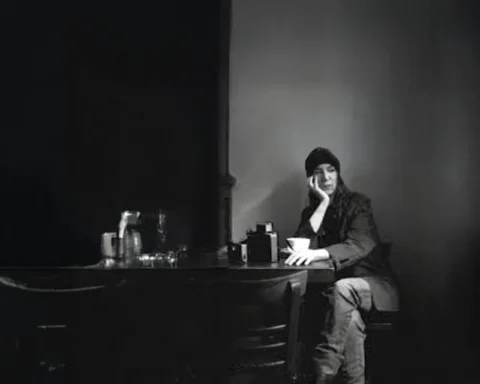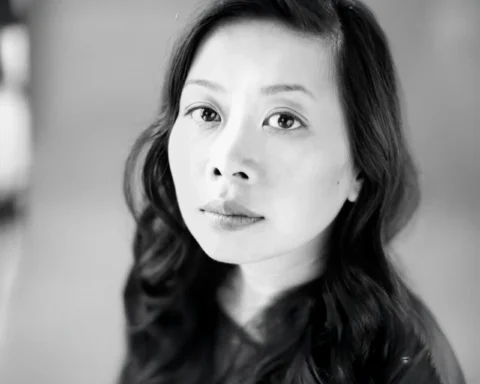–By J.S. Porter
If it doesn't
look like
sound like
smell like
a poem
it
must be
an
Anne Carson
She’s some kind of genius, some kind of poet; it’s just too early to tell what kind.
Best bio ever: “Anne Carson was born in Canada and teaches Greek for a living.” She reads; I read. She’s born in Canada; I’m bred in Canada. She speculates, I speculate. Born in the same year—1950—we’re practically twins, so why can’t I do what she does?
She comes at things slant, as the mother of contemporary gnomic utterance (Emily Dickinson) came at things slant, as the great-great (scores of great) grandmother of gnomic utterance Sappho herself came at things slant. Sometimes the work, when the mind works alone, is merely clever and disposable, and sometimes it is profound and adhering when the mind works harmoniously with the heart.
Sometimes she puts magic on the page, and you don’t see the magician and you’re unaware of the tricks. In her one page and a bit, she slips slowly into melancholy and midway changes speed, turns up the amperage and jolts into rapture. Like her hero, Oscar Wilde, she dons different hats, strikes different poses, wears different masks, dodges, feigns, multi-voices on the same page. Like any good animal, she is elusive, she eludes.
Whatever her writing is about, it’s about writing.
She writes with a book in her hand, a quotation, a line, an utterance. Someone else’s. Then she makes her own counter utterance, additive utterance, interactive utterance. Reads and embroiders, writes and embroiders.
She gives you mood, tone, play, emotion and immense erudition.
Here, in “Merry Christmas from Hegel,” she gives me (“one” is too formal, “you” too vague) Christmas, a philosopher, a dead brother and a snowy environment intermingling, interacting in her consciousness, at once strange and powerful.
I can’t quit her. I look for the one text, the one utterance, the one poem that persuades me that I’ve found what I’m looking for and I don’t need to pursue another.
Like joanne burns in “reading,” who resists reading, who carries The Poetics of Space for three months through India and only reads the titles of the chapters—house and universe, nests, shells, intimate immensity, and the hut—and comes to the conviction that “this was the only book she had need of, that this was the book she would enter the pages of, that this was the book she was going to read,” I think I may have found my page. The ironies, ambiguities and paradoxes of Carson’s short piece of writing on Hegel satisfy me as much as a haiku by Bashō or an essay by Emerson.
A PERSONAL NOTE
I didn’t know that Anne Carson was struck by Parkinson’s when I began my blog on “Merry Christmas from Hegel,” one of the twenty-two chapbooks in the plastic-boxed miscellany called Float.
Carson describes Parkinson’s this way:
Parkinson’s is a disease that turns off certain genes in the cells of the brain, no one knows why. Many physical actions, and some cognitive actions, are thereby inhibited or mangled.”
I don’t know much about the disease but know from my next-door neighbour and a former student something of its power to dismantle the human personality. I know nothing of Carson’s personal life. In her writing life, she is innovative and experimental. She has flair and style and courage. She writes with pluck and aplomb. She incarnates bpNichol’s concept of borderblur in her work that so deftly moves across boundaries and borders. Her contribution to Canadian, and world, letters is immense. I can only offer her my gratitude, for bringing me joy and challenge on the page, book after book whether in her translations, essays or poems.
I can only offer her the words of Ezra Pound:
What thou lovest well remains,
the rest is dross
What thou lov'st well shall not be reft from thee
What thou lov'st well is thy true heritage












